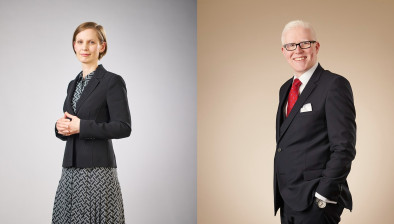Blog: Why professionalism is as important to the built environment as it is to medicine

CITB chairman, James Wates, on improving the image of construction.
Buildings, like doctors, keep us safe and healthy. They offer protection to us and our families. Despite this, the construction industry doesn’t have the same reputation the field of medicine does.
No matter how much people appreciate the buildings they live, work and play in, builders are not nearly as well-regarded as doctors are in our society.
However, I believe that by raising levels of professionalism within our industry, we can uproot these negative perceptions and improve our reputation for the long-term.
Professionalism can be difficult to define but everyone recognises it once it’s achieved.
Building is in my blood, so I get frustrated when things go wrong. I get frustrated when I hear about so-called ‘cowboy builders’ doing shoddy work. I hate to think about the poorly built and maintained buildings that fail to keep society’s most vulnerable warm and dry.
I hate to hear about our industry being brought into disrepute. Being so committed to the construction industry, I have high expectations and aspirations.
I want to see the best and brightest young people pursuing careers in construction, and to do so, we need to challenge the various negative preconceptions that mar our industry.
Without a doubt, there has been a concerted effort to improve the image of construction and encourage people to join. Last year, we saw the launch of Go Construct, a web portal designed to challenge some of the outdated stereotypes about working in construction, and demonstrate the hundreds of career options and entry routes available.
One issue we need to tackle is the belief held by some that people who study at university don’t go on to work in construction. One way we are challenging this is by working with industry and government to develop Degree Apprenticeships, a means by which people can earn their university qualification while also gaining on the job experience.
We can attract the best and brightest also by behaving more professionally. We can learn a lot from the medical profession – it has a rich tradition of ethics tracing back to the Hippocratic Oath, giving us standards that we can aspire to.
In health care and many other well respected professions like law and accounting, professionals are required to hold a license or achieve acceptance into a chartered institute that sets industry-wide standards in order to practice.
The construction industry could really benefit from setting and abiding by strong quality standards to embed a culture of excellence – and in so doing build trust within communities.
There needs to be a greater sense of cohesiveness within our industry to set high working standards and encourage the implementation of these standards among individuals. Historically, there’s been a real segregation between those construction workers who are onsite and those who are office-based.
Also, construction has a large proportion of small and micro-businesses, many of which are just one or two men. These individuals may not feel as though they actively represent the industry when they’re at work. They may not have team meetings or a collective space to spend time with colleagues. They may not have colleagues at all.
And when there is a distinct lack of cohesiveness, there is a higher risk that the client isn’t delivered a high-quality product.
So we need to band together to stop isolation and segregation and encourage professionalism within individuals, irrespective of job title, in order to improve customer satisfaction and the industry’s reputation as a whole.
Many individuals and organisations within our industry have taken positive steps towards achieving professionalism - you only need to cast your mind back to last year’s Pride of Construction Awards to recall the impressive work of so many. In order to continue this progression, it’s important that we as an industry commend these efforts and do everything we can personally to realise construction’s vision and ambition for professional development.

















